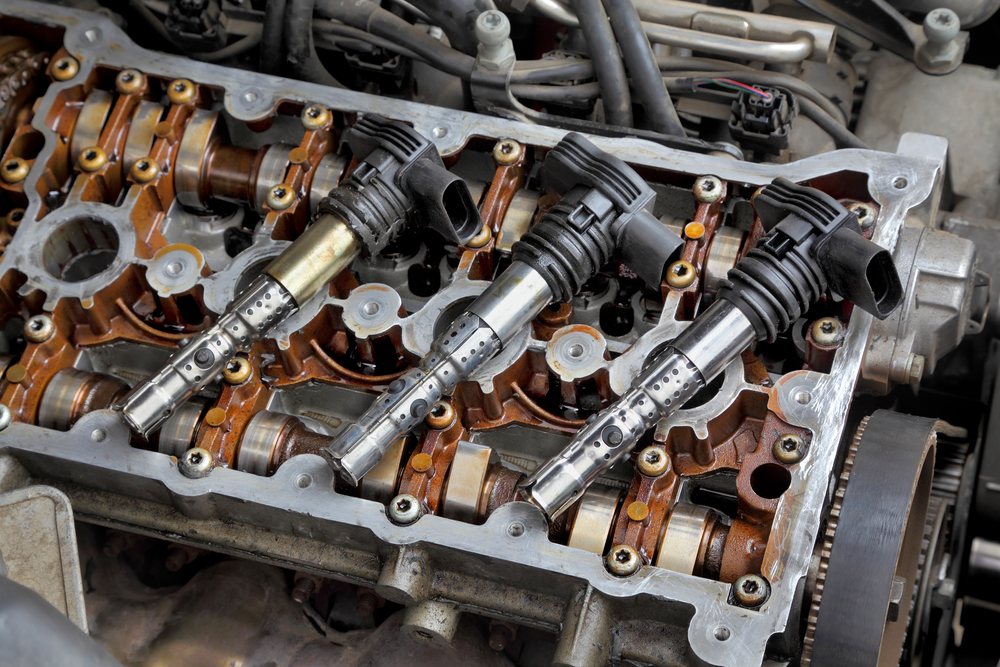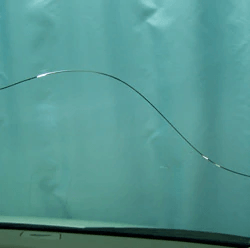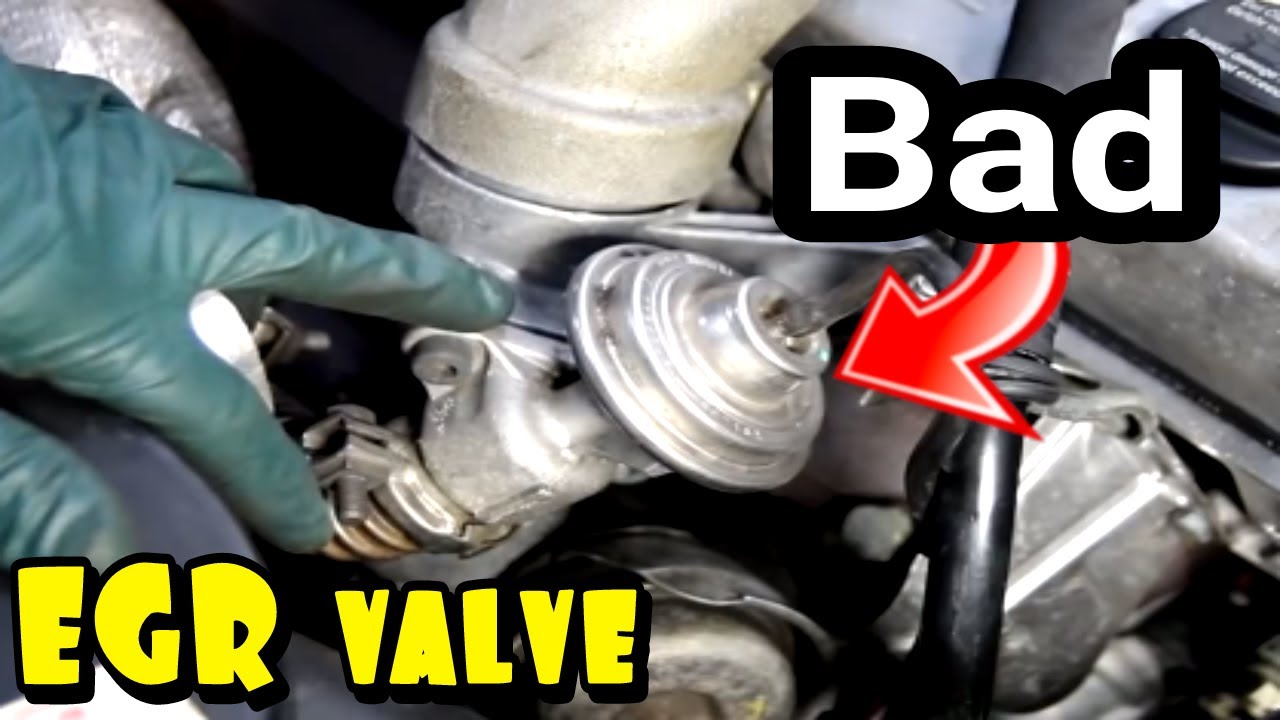Can a Bad Coil Pack Cause Misfire
Yes, a bad coil pack can indeed cause an engine to misfire. This auto component is pivotal for ignition and engine performance.
A faulty coil pack disrupts the ignition system’s ability to fire correctly, leading to misfires that harm vehicle performance and fuel efficiency. Understanding this connection is crucial for both mechanics and car owners. The coil pack provides the spark that ignites the air-fuel mixture within the engine’s cylinders.
Without a properly functioning coil pack, the engine may experience rough idling, lack of power, or even fail to start. Regular maintenance and timely diagnosis of ignition components, including the coil pack, can prevent misfires and ensure that your vehicle runs smoothly. Recognizing the signs of a failing coil pack helps in avoiding more significant engine issues and maintaining optimal vehicle health.
Symptoms Of A Faulty Coil Pack
A key player in your vehicle’s ignition system is the coil pack. Its failure often leads to engine performance issues. Recognizing these symptoms early can save you time and money. Let’s explore the common signs of a bad coil pack.
Engine Misfires
A clear indication of a faulty coil pack is engine misfire. This happens when the engine sputters, stalls, or struggles to maintain power. Here’s what you might experience:
- Intermittent stuttering during acceleration
- Unexpected stalling of the engine
- Engine struggling to start or completely fails to start
Rough Idle And Reduced Power
When a coil pack is failing, rough idling or noticeable loss of power can occur. Symptoms include:
- Engine vibration or shaking at idle
- Notable loss of acceleration
- Decreased horsepower felt during vehicle operation
Poor Fuel Economy And Excessive Emissions
Bad coil packs affect fuel efficiency and increase emissions. Here’s what might change in your car’s performance:
- Noticeable drop in miles per gallon (MPG)
- Increased pollution due to incomplete combustion
- Increased presence of unburnt fuel in the exhaust
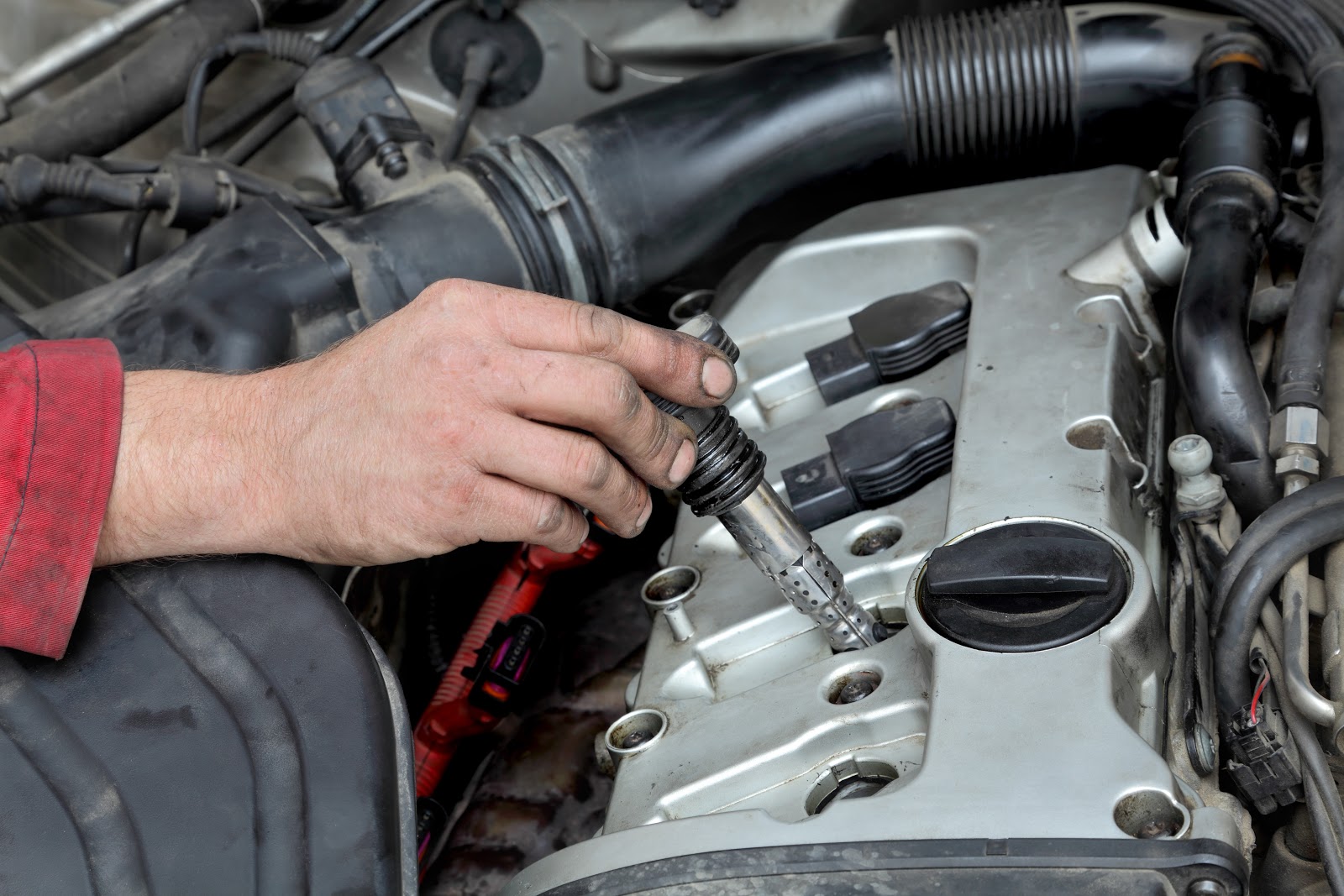
Credit: www.ymfcarparts.co.uk
Diagnosing The Cause Of Misfire
A vehicle’s misfire is a common issue that drivers encounter, often leading to poor performance and fuel economy. In many cases, a bad coil pack is the culprit behind this problem. To ensure that your vehicle is running smoothly, understanding how to diagnose a misfire is crucial.
Troubleshooting Steps
Determine the source of the misfire to fix your vehicle quickly. Follow these steps:
- Check the engine light. Is it on? It often signals a misfire.
- Listen for irregularities in the engine’s sound. This could indicate misfiring cylinders.
- Feel for vibrations. They suggest engine problems.
- Inspect the coil pack visually. Look for cracks or damage.
- Swap the coil pack with another cylinder. Does the misfire move? Then the coil pack could be bad.
Tools For Diagnosis
Use the right tools to confirm a misfire. Equip yourself with these:
- OBD-II scanner – Reads engine codes.
- Multimeter – Tests electrical connections.
- Spark tester – Checks for spark in the coil pack.
Interpreting Diagnostic Codes
Understanding the language of your vehicle’s computer is key. Here’s how:
| Code | Meaning |
|---|---|
| P0300 | Random misfire detected. |
| P0301-P0312 | Misfire in specific cylinder (number). |
| P0351-P0362 | Ignition coil issue (letter A-L). |
Scan the vehicle to get these codes. Match them with the table. This will guide you to the misfire source.
How Coil Packs Function
Car engines need the right spark at the right time. Coil packs play a key role in this process. They are critical for engine performance. Without them, cars can run into issues like engine misfires. Let’s dive into how coil packs function and keep your engine running smoothly.
Ignition System Basics
The ignition system’s main job is to ignite the fuel and air mixture inside the engine. This ignition creates the explosion that pushes your car forward. Here’s a simple breakdown:
- Spark plugs ignite the air-fuel mixture.
- Ignition coil generates the high voltage for spark plugs.
- Battery supplies the initial electrical power.
The Role Of Coil Packs In Engine Performance
Coil packs are the modern version of ignition coils. They are a bundle of coils working together. Each coil pack fires spark plugs in the correct order.
Cars can have one coil pack or one for each spark plug. This depends on the engine design. Coil packs:
- Boost energy to each spark plug.
- Ensure timely and powerful sparks.
- Improve fuel economy and lower emissions.
When a coil pack fails, the engine could misfire. This means a spark plug didn’t get its spark. Misfires can lead to poor performance and even damage. So, keeping coil packs in good condition is important for a smooth ride.
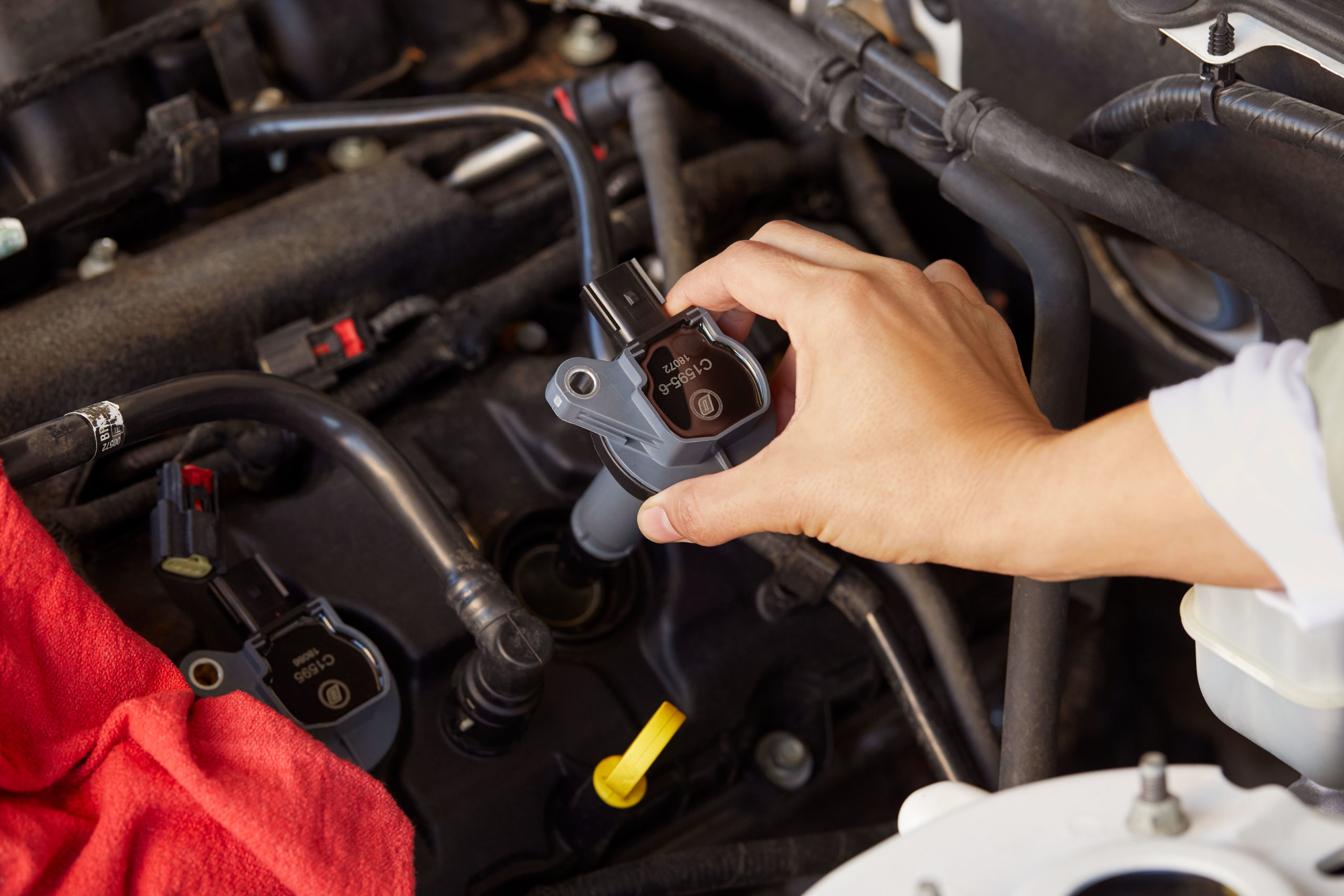
Credit: www.autozone.com
Replacing A Damaged Coil Pack
A bad coil pack can indeed lead to misfires, disrupting engine performance and efficiency. A coil pack provides the necessary electrical spark to ignite the fuel-air mixture within each engine cylinder. When it fails, replacement becomes necessary to restore engine function and prevent further damage.
When To Consider Replacement
Recognizing the right time for coil pack replacement avoids prolonged engine issues. Signs include:
- Engine misfires often
- Poor fuel economy follows
- Engine light activates on the dashboard
- The car’s performance drops sharply
Step-by-step Guide
Replacing a coil pack involves a few clear steps:
- Disconnect battery to ensure safety.
- Locate the coil pack, usually on top of the engine.
- Remove holding bolts and electrical connectors.
- Install the new coil pack, reversing removal steps.
- Reconnect battery and test the engine.
Common Pitfalls To Avoid During Installation
Proper installation avoids future issues. Beware of:
- Incorrect coil pack for your engine model
- Loose or improperly connected electrical wiring
- Over-tightening bolts, causing damage to the unit
- Forgetting to reconnect battery leads
Preventing Future Misfires
Misfires in your vehicle are not only annoying. They also harm performance and could damage your engine. Thankfully, you can take steps to prevent them. Regular checks, quality parts, and smart driving can make a big difference. Let’s explore how to keep your engine firing on all cylinders!
Regular Maintenance Schedule
Staying on top of engine maintenance is key. It keeps everything running smoothly. Your car has a manual. It tells you when to check parts. Follow this closely. Ignition system maintenance is often overlooked. Don’t let it slip! A healthy engine needs timely attention.
- Change spark plugs as suggested.
- Inspect the coil pack regularly.
- Clean fuel injectors to prevent clogs.
Quality Replacement Parts
Never skimp on parts quality. Cheap ones can fail quickly. They might even cause more misfires. Always choose OEM or top-tier aftermarket parts. These are made for your car. They last longer and work better.
- Stick with trusted brands for coil packs and spark plugs.
- Keep warranties and return policies in mind.
- Ask your mechanic for part recommendations.
Driving Habits That Extend Ignition System Life
The way you drive affects your car’s health. Avoid sudden starts and stops. Drive steady to reduce wear and tear. Gentle driving helps parts last longer. Regularly warm up your car before driving hard. This helps the oil flow and protects your engine. Avoid idling for too long. This can foul the spark plugs.
- Practice smooth acceleration and deceleration.
- Avoid revving the engine when it’s cold.
- Keep your tank at least a quarter full to prevent fuel pump issues.

Credit: m.youtube.com
Frequently Asked Questions Of Can A Bad Coil Pack Cause Misfire
Can A Bad Coil Pack Lead To Engine Misfire?
A defective coil pack can indeed cause an engine misfire. It disrupts the normal ignition process, leading to incomplete combustion and engine performance issues. Timely replacement is crucial for optimal vehicle function.
What Are Symptoms Of A Failing Coil Pack?
Symptoms include rough idle, reduced power, engine stalling, and an illuminated check engine light. You might also notice increased fuel consumption and a lack of acceleration, indicating potential coil pack issues.
How Does A Coil Pack Affect Fuel Economy?
A malfunctioning coil pack can lead to unburnt fuel and inefficient combustion. This inefficiency often results in higher fuel consumption as the engine compensates for the loss of power, negatively impacting fuel economy.
Can I Drive With A Coil Pack Misfire?
Driving with a misfire can cause further engine damage and is unsafe. It’s best to address the issue promptly to avoid costly repairs and ensure vehicle safety.
Conclusion
Understanding the intricate connections in your vehicle’s ignition system is key. Coil packs play a crucial role, and when they fail, misfires often follow. Ensure regular maintenance to prevent such issues. For a smooth, efficient ride, stay vigilant about your car’s health and address potential coil pack problems promptly.

